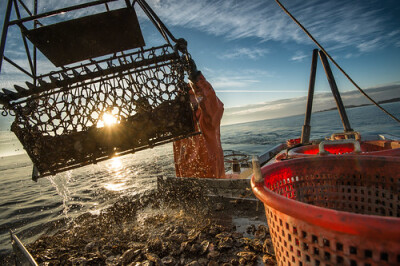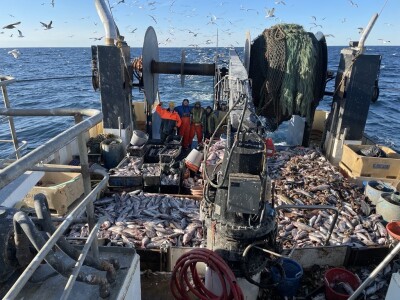VINALHAVEN, Me. — Late last year, Magnus Lane, a lobsterman with the propensity for wearing pirate-themed pajama pants around this rocky island town, found himself at the end of his rope. A glut of lobsters during the previous summer had pushed lobster prices to a 40-year low, while the cost of bait, fuel and complying with state and federal regulations seemed to creep ever upward.
Tired of hearing fellow lobstermen grouse, Mr. Lane, whose 30 years living in Maine have done nothing to dampen the deeply progressive political spirit he grew up with in his home country of Iceland, called some union organizers in the state, and made a wild suggestion: his ailing industry, despite its entrenched ethos of self-reliance, just might be ripe for their services.
That was the beginning of the Maine Lobstermen's Union, a local organized by the International Association of Machinists and Aerospace Workers. The union has signed up 600 members — 240 of whom have paid dues, so far — drawn by the promise of dedicated lobbying at the State Capitol on their behalf and the hope of market clout that could get them higher prices for lobster. But its growth has mystified others in the lobster industry, with its fierce independence and sometimes acrid competition, who have raised questions about whether a machinists' union could, or should, effectively unite lobstermen.
Rocky Alley, the union president, stood up in a diner late last month in Portland and addressed a small group of local lobstermen who had come to hear his pitch. He recalled the first recruitment call he got from Joel Pitcher, the machinists' union's organizer who has been traveling Maine's coast, piecing the lobstermen's union together.
"I said, 'You've got to be joking,' " said Mr. Alley, a towering man who speaks with an unmistakable Down East accent.
It is a wariness shared, at least initially, by many of the union's current members. Maine has about 5,000 licensed lobstermen, all of whom work on an independent basis. They compete for the sea's spoils, and in some parts of the state it can turn nasty. Lobstermen who break unwritten rules can find themselves with cut gear or sunken boats; in 2009, a dispute escalated into a shooting.
Read the full story at the New York Times>>






